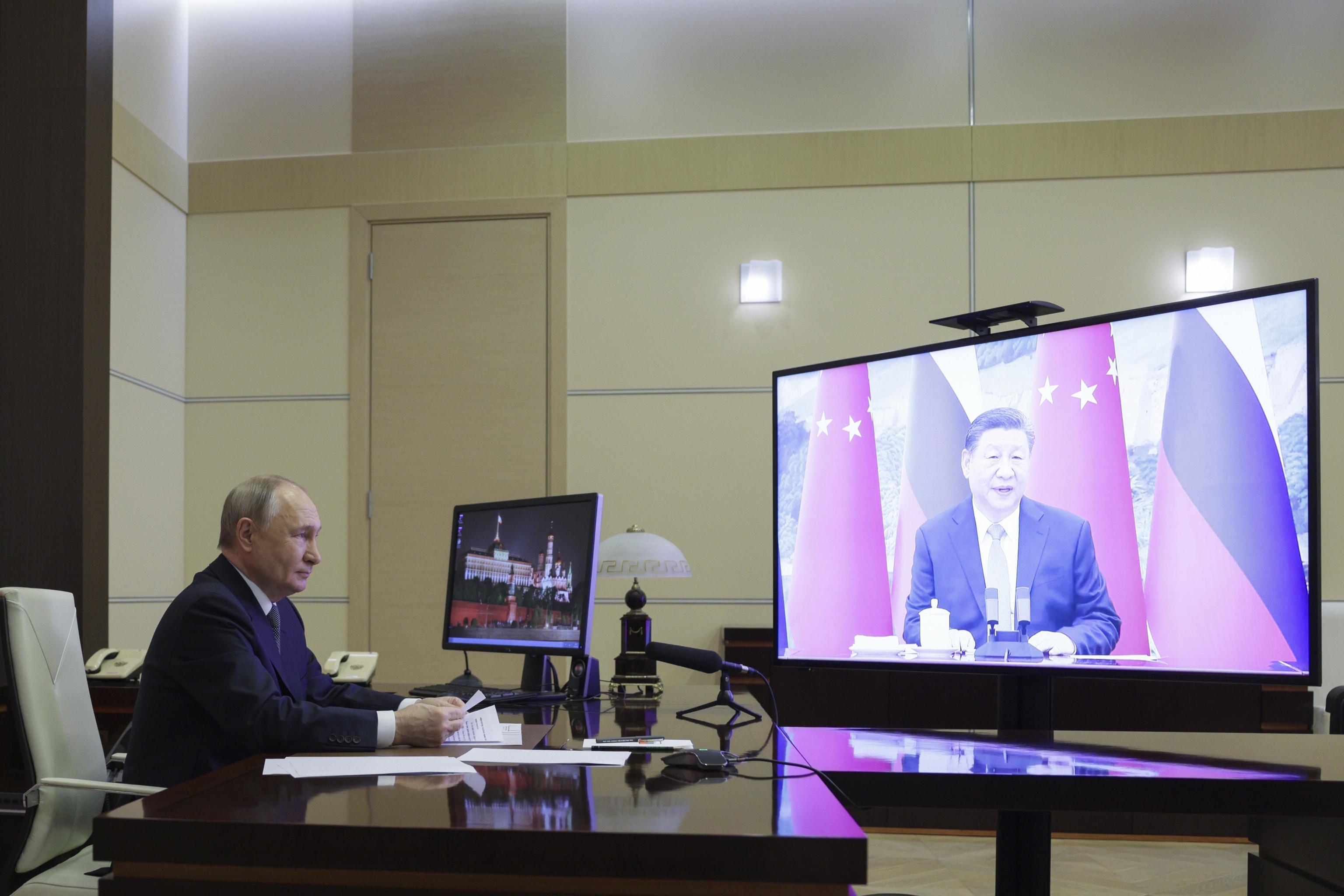Amid all the noise in Washington following the return of the Republican bulldozer to the White House, on the opposite side of the geopolitical chessboard, a video call with significant implications took place. Chinese President, Xi Jinping, held a virtual chat on Tuesday with his Russian counterpart Vladimir Putin.
After the inauguration of Donald Trump as President of the United States, the leaders of Beijing and Moscow exchanged views in their first chat of 2025.
According to a transcript of the video call published by Moscow, Putin noted that it was a "good tradition" to meet at the beginning of each year to "outline new plans for the development of the Russia-China partnership and strategic cooperation." The Russian leader stated that the past year was "very fruitful" for both neighbors and added that both countries are "coordinating our steps in other multilateral forums."
On his part, the Chinese leader, who referred to Putin as his "dear friend", added that the relations between the two countries were strengthening and that he hoped "the ties would reach new heights."
Xi and Putin aimed to capture some of the media attention that was focused on the flurry of executive orders signed by Trump shortly after starting his second term. The U.S. President made headlines as he interacted with journalists while signing documents in the Oval Office. One of them was his intention to meet with Putin "very soon." Regarding Xi, some Washington journalists reported that Trump would like to travel to China early this year.
Last Friday, three days before the inauguration, Trump picked up the phone to call the Chinese leader. A very important conversation because, in addition to addressing global current affairs and the many fronts between the two global superpowers, they committed to "establish strategic communication channels and maintain regular contacts." These channels were broken for much of the Joe Biden administration and are crucial to prevent diplomatic and economic confrontations between the two adversaries from escalating into a more direct and dangerous clash.
Following that call, Beijing stated that Trump and Putin had exchanged views on the Russian invasion of Ukraine. On Monday, Trump, although not mentioning this war in his inaugural speech, stated that Ukrainian President, Volodimir Zelenski, "wanted to reach an agreement" and that Putin "should also do so" because he is "destroying Russia." Putin congratulated Trump before his inauguration, stating that the Kremlin was willing to engage in dialogue with the new U.S. administration.
It seems certain that the Russian leader will maintain his close relationship with the Chinese leader. Last year, Putin and Xi held three bilateral meetings. The armies of both countries increased their joint military exercises, and trade between Beijing and Moscow set a new record, increasing by 2.9% compared to 2023. However, this growth was significantly slower than the 32.7% increase in 2023 when the Asian giant heavily purchased more sanctioned Russian oil by the West.
The Chinese government has not officially supported the invasion of Ukraine (referred to as a "crisis"), but the Beijing-Moscow axis, especially in the economic field, is the Kremlin's main strategy to navigate through the shake-up of Western sanctions. From the United States, the previous Biden administration accused the Chinese government of selling the dual-use technologies necessary to fuel Moscow's "war machine".
Last year, Xi and Putin made efforts to promote their shared vision of what their propaganda media have called an alternative "multipolar world order" to the one dominated by the U.S. To achieve this, both leaders sought to strengthen their alliances through groups like the Shanghai Cooperation Organization and the BRICS.
"We jointly advocate for the construction of a more just multipolar world order and work to ensure indivisible security in the Eurasian space and in the world as a whole," Putin told Xi during their video call. "It can be confidently stated that the relations in foreign policy and the joint work between Russia and China objectively play an important stabilizing role in international affairs."
